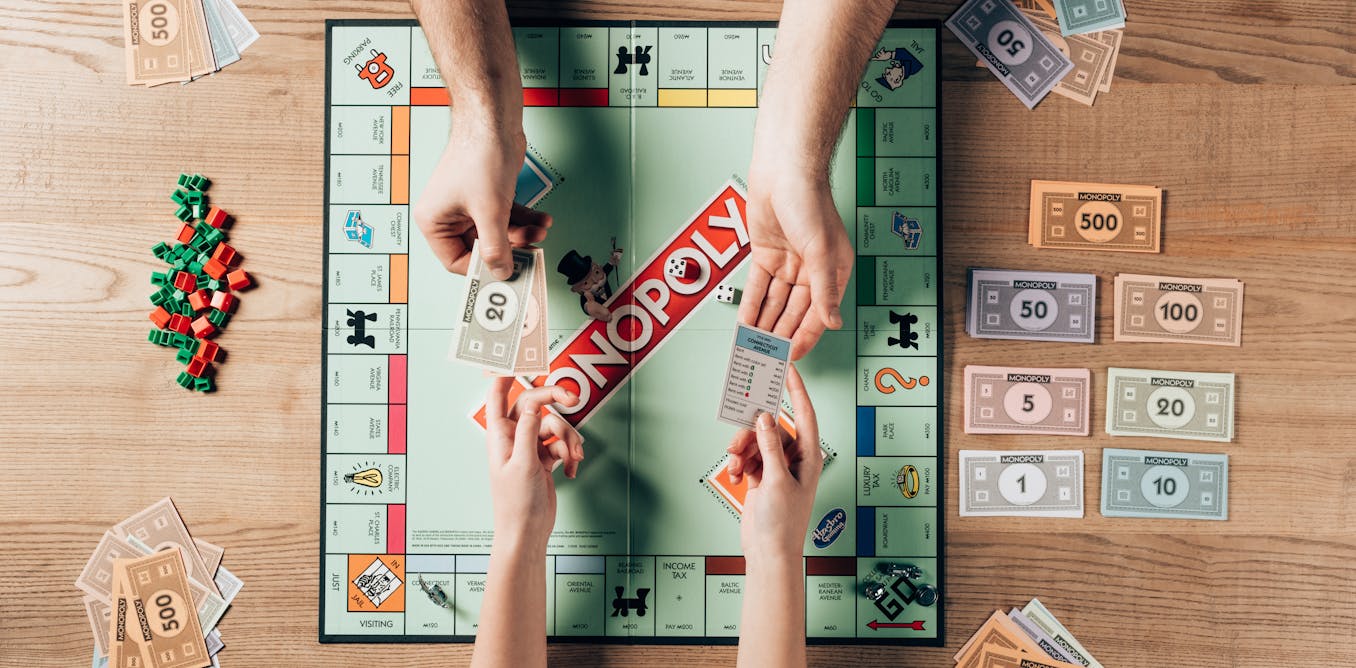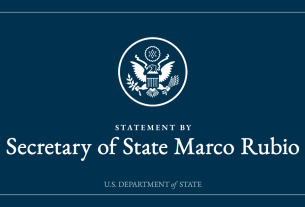The early 21st century saw rapid growth in new, predominantly digital entertainment. Video games, streaming and podcasts now dominate our free time, but one analogue product, whose roots date back to the origins of human civilisation, has made a resounding comeback: the board game.
While board games have been popular for centuries, those created in the 20th century – such as Risk, Trivial Pursuit and Monopoly – are probably the best known.
But beyond these classics, what is it that makes a board game “modern”? The answer comes from Europe, specifically from Germany, where Eurogames or “Euro-style” board games originated in the late 20th century. The 1995 game Catan was the first major success in this genre.
Unlike older games, which typically had one sole objective, players win Euro-style games by combining various different mechanics, and players are never eliminated from the game, nor are they left with zero chance of winning. Eurogames also tend to minimise or eliminate the impact of chance – instead of luck, the player who makes the best decisions is the winner.
Since Catan’s success, Eurogames have transformed board games to such an extent that we can find elements of them in almost any modern board game.
Homo ludens: learning through play
Games go far beyond mere entertainment to touch a very important part of our brains, as philosopher Johan Huizinga argued in his book Homo ludens. According to Huizinga, an interest in play is what defines human existence – all culture stems from this interest.
We can complement this idea with an evolutionary reflection: learning is fundamental to the human species, and the most effective way to learn is through play. Any game can be considered a potential learning tool, since in order to win a game we must first learn the mechanics that govern that game and the objectives we must achieve to win, and then apply this knowledge to inform our decisions and strategy.
But it’s also worth asking what we learn from playing games, especially when they deal with topics like economics, a popular theme both in classic board games like Monopoly and modern ones such as Catan.
To answer this question, we have to reflect on what the mechanics of each game simulate, and what they aim to teach us.
Monopoly: capitalism, the State and private property
The Monopoly that we know today was published by Parker Brothers in the 1930s. It was heavily inspired (to put it mildly) by The Landlord’s Game, a board game designed by feminist writer Elizabeth Magie in the early 20th century.
Magie’s intention was mainly educational. The game was a tool for understanding the serious problems caused by the concentration of property in a few hands, which required state intervention to regulate the property market.
However, anyone who has played Monopoly knows that the game transforms this concept into an entertainment product, in which players try to become rich by speculatively buying up property. Chance, rather than economic skill, determines the winner.
Read more:
How Monopoly informs academia and economics, even when it’s not obvious
Settlers of Catan: supply and demand
On the other side of the ring we have Settlers of Catan, a game that, like any good Eurogame, combines various mechanics that interact with each other. First, we have the importance of geography, since the starting positions determine which resources will be abundant and which players will have direct access to them.
Since nobody controls all the resources, a free market is created where players can purchase the resources they lack. The availability of resources fluctuates based on supply (controlled by geography and chance) and demand (the needs of the players).
Julie Gropp/Shutterstock
Negotiation skills and planning are essential. At the beginning of the game everyone needs wood and bricks to build roads and villages, but as the game progresses and players try to transform villages into cities, the price of ore and wheat rises.
The range of possible paths to victory mean that some players focus on developing as many cities as possible, while others buy development cards. Even players who fall behind on the scoreboard can rack up points by building the longest road and accessing ports that allow them to trade.
Read more:
What’s unsettling about Catan: How board games uphold colonial narratives
Products of different eras
Monopoly and Settlers of Catan are games from different eras, and the latter reflects a much greater level of maturity in terms of game design thanks to decades of accumulated innovation.
Like any cultural product, these games reflect the society that birthed them, and each one, in its own way, teaches us what strategies lead to success, at least within the confines of the game.
They are not the only ones. Thousands of new board games are published every year, and their diversity of themes and approaches has grown exponentially since Catan was released more than 25 years ago. To name just a few examples, you can now recreate the industrial revolution of the 19th century in Brass: Birmingham, build a new green economy on another planet in Terraforming Mars, or even lead a 21st century workers’ revolution in Hegemony.
Play and social change
While games can be fun, there is also the question of whether playing them can truly help us overcome real-world challenges like property speculation, social inequality and the climate emergency.
The answer is complex. Games have the power to transform our view of the world, but not all of them teach equally useful or valid things. For games to be useful learning tools, we need, above all, the critical ability to extrapolate the experience of the game into viable solutions in the real world.
Unfortunately, this is easier said than done. In real life, rules and objectives are much more vague than on the board, and sometimes we have to play games, even though we know full well that the dice are stacked against us.



